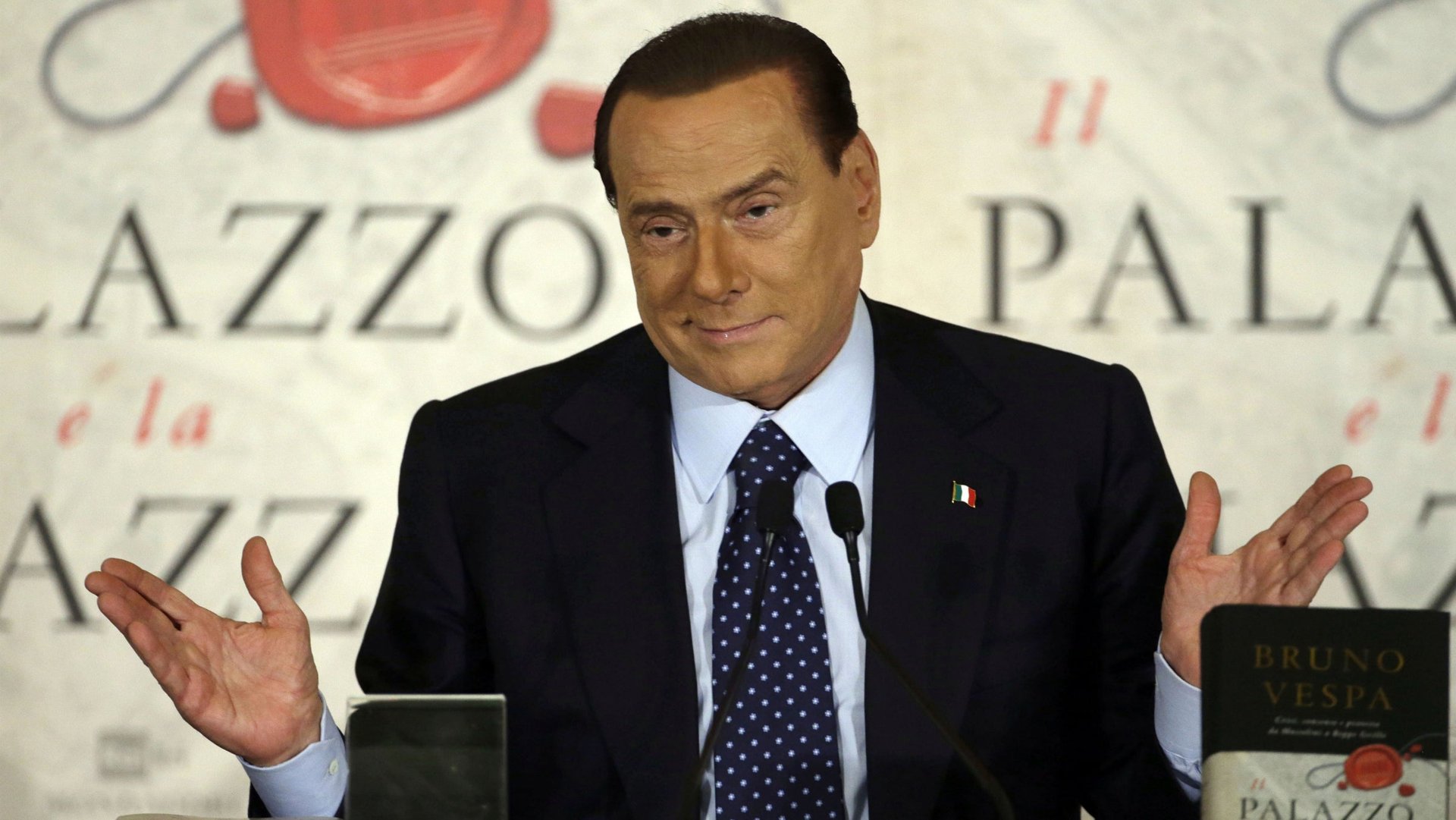This is what happens now in Italy
The latest projections on the outcome of the Italian elections indicate that neither Pier Luigi Bersani’s center-left party nor Silvio Berlusconi’s center-right party have won a clear-cut victory in Italian elections that drew to a close yesterday. Bersani squeaked by with a narrow lead in the lower house of the Italian parliament—the Chamber of Deputies. Italian law grants the largest coalition in the lower house enough seats to rule with a workable majority of 55% of seats. But even with the help of technocrat PM Mario Monti’s small following, the pro-reform Bersani lacks enough support to construct a majority in the Senate.


The latest projections on the outcome of the Italian elections indicate that neither Pier Luigi Bersani’s center-left party nor Silvio Berlusconi’s center-right party have won a clear-cut victory in Italian elections that drew to a close yesterday. Bersani squeaked by with a narrow lead in the lower house of the Italian parliament—the Chamber of Deputies. Italian law grants the largest coalition in the lower house enough seats to rule with a workable majority of 55% of seats. But even with the help of technocrat PM Mario Monti’s small following, the pro-reform Bersani lacks enough support to construct a majority in the Senate.
This is probably the worst-case scenario for investors, who had hoped a coalition of Bersani and Monti would prevail. Although more than 11% of Italians—and 36% of young Italians—are unemployed, the country passed numerous economic reforms during Monti’s tenure, from late 2011 to date. Bersani was unlikely to be as ardent a reformer, but investors consider almost anything to be better the return of Silvio Berlusconi and his cronies.
How it happened
Center-right former PM Silvio Berlusconi staged a comeback in the polls late in the game, making promises to cut taxes and end austerity. But the success of a third party was most surprising. Five Stars (M5), led by populist comedian Beppe Grillo, won a stunning 25% of votes, with a lot of that momentum coming in the last week. But his party is a wildcard; mainly focused on reforming an electoral system it finds corrupt, it has gained support from all sides of the political spectrum. What’s more, Grillo himself won’t even be able to become a member of parliament, since he was convicted of manslaughter in a car accident and barred from the post. Thus the party’s solidarity could prove tenuous, with both Bersani’s left and Berlusconi’s right likely to court individual members of Grillo’s group.
There’s a lot of time for that to happen. Both houses of parliament have to convene by March 15, but the deadline for forming a coalition is long after that. It could coincide with President Giorgio Napolitano’s last day in office on May 15, by which time both parties will have had to elected a new President. Until then, current PM Mario Monti will remain in control.
The lack of a clear majority would normally force parties to negotiate to form a grand coalition to make a stable government, but Bersani’s party has ruled out the possibility of uniting with Berlusconi’s. Nor are they likely to appoint a technocrat (like Monti was) at the government’s helm. (Monti, for the record, is probably not eligible for the post, having already thrown his hat in the political ring this election.) Therefore, there’s a good chance that Italy could end up with a hung parliament for the first time in its history as a republic if the parties aren’t able to form a viable government. Alternatively, Bersani and Monti could form a minority government, scraping together enough seats in the Senate to hold fragile control. But even then, the government risks dissolution whenever hard-to-stomach reforms and anti-austerity policies show up for a vote.
Another vote?
In both likely scenarios—a minority, Bersani-led government or a truly hung parliament—a new parliamentary vote in Italy is almost a sure thing within the next few months. Those elections are unlikely to be held in the next month or so, however; elected deputies will have 45 days to report to their parties (pdf).
Furthermore, neither Berlusconi nor Bersani really wants a second round of elections immediately. Although Berlusconi and Grillo both gained ground in the last few weeks up to the election—Berlusconi for his campaign techniques (namely, impossible promises) and Grillo for his anti-establishment rhetoric—Grillo is likely to benefit from the failure of the Italian parliament to produce a viable government. Both major parties will try to wait until third-party enthusiasm dissolves.
“There is a real sense that this is not a good result whatever happens,” says Ian Limbach, a PR consultant who works with major multinational businesses in Italy. Until there’s certainty in the euro area’s third-largest economy, the future of reforms there will be up in the air. Markets appear to agree with his assessment. The Italian FTSE MIB was down 4% in trading today, and yields on Italian 10-year bonds—a sign of falling faith in the Italian government’s ability to repay its debts—had jumped 36 bps to 4.79%. Uncertainty in Italy translates into uncertainty in the euro as a currency union.
The election turmoil and Grillo’s success smack of Greece’s political turmoil last year. Greeks were forced to endure two rounds of parliamentary elections, after radical opposition party SYRIZA won a surprising amount of support. The old parties—Socialist PASOK and center-right New Democracy—had governed Greece since it became a democracy, but were hard-pressed to win a clear majority that could overwhelm the opposition. Although ultimately able to form a coalition, the tension-fraught elections shone a light on increasing resistance to austerity policies in Greece.
Updated from original, which was published at 2:59 p.m. on Monday, February 25.